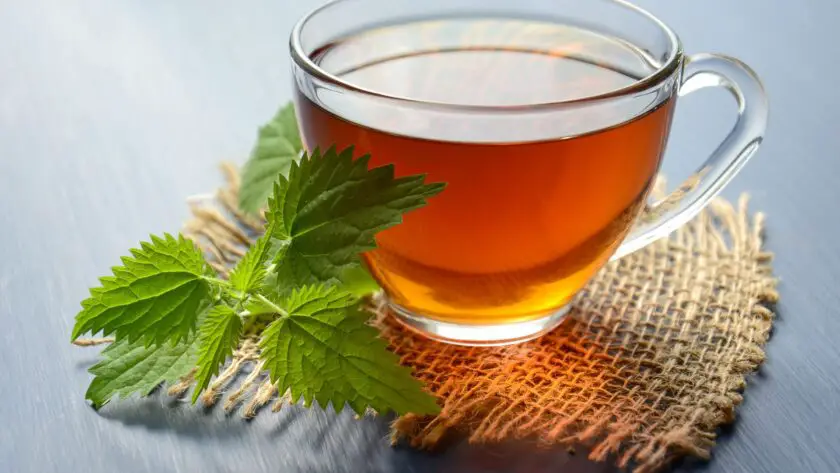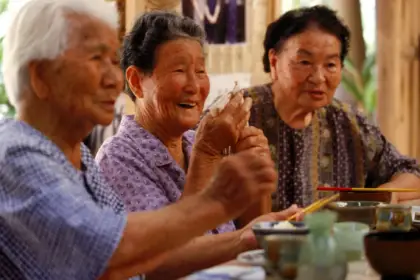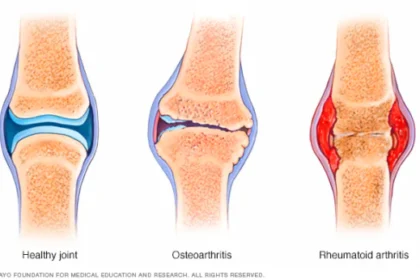In our quest for the elixir of eternal youth, we may not find a magical potion or hidden fountain, but scientific studies suggest that our diet plays a significant role in promoting longevity. Supporting this claim is the extensive research conducted by Dan Buettner, a National Geographic Fellow, bestselling author, and founder of the Blue Zones. Buettner and his team have identified five regions around the world known as the Blue Zones: Nicoya, Costa Rica; Ikaria, Greece; Sardinia, Italy; Okinawa, Japan; and Loma Linda, California. These regions are home to populations with the highest life expectancy, and unsurprisingly, the consumption of tea plays a crucial part in their longevity.
Tea, a beverage with a rich history and cultural significance, has been extensively studied for its health benefits. Numerous research studies have highlighted its positive effects on bone and brain health, particularly as individuals age. For instance, evidence supports that consuming a minimum of two cups of black tea daily is associated with an extended life expectancy. Let’s explore the three most common teas consumed in the Blue Zones, as revealed by Buettner.
Green Tea: In Okinawa, Japan, green tea is a beloved beverage that is known for its heart disease and cancer-fighting properties. This tea is abundant in flavanols, which are antioxidants that can lower LDL cholesterol and promote cardiovascular health. Additionally, green tea contains beneficial compounds such as catechins, which combat free radicals, and L-theanine, an amino acid that may improve mood and cognitive function. An alternative antioxidant-rich option is butterfly pea flower tea.
You can get organic green tea and matcha green tea from Microingredients.com by clicking here.
Herbal Teas: In Ikaria, Greece, locals often brew teas using local herbs, contributing to the rarity of chronic illnesses like dementia. The Ikarian diet also includes beans, wild greens, olive oil, lemons, and potatoes. Some commonly consumed herbal teas in this region include mint, which helps prevent gingivitis and ulcers, rosemary, which aids in treating gout, and artemisia, which promotes blood circulation. Laboratory testing of these herbal teas has revealed their antioxidant properties and mild diuretic effects, assisting in waste elimination and regulating blood pressure.
Milk Thistle Tea: In Sardinia, Italy, milk thistle tea is favored for its digestive benefits, nutrient storage support, and detoxification properties. This herb is also associated with cancer prevention, inflammation reduction, heart protection, and liver health maintenance. Studies further suggest that milk thistle extracts can help control chronic liver diseases.
You can get organic milk thistle powder from Microingredients.com by clicking here.
Tea Consumption and its Impact on Longevity
According to the Tea Association of the USA, as of 2021, approximately 84% of the US population drinks tea, highlighting its popularity. Globally, countries such as Turkey, Ireland, and the United Kingdom have the highest tea consumption per capita, indicating a widespread embrace of this beverage.
While Buettner’s Blue Zones house only 0.0001% of the world population, they boast an impressive number of centenarians, with Okinawa, Japan, leading the way. Research suggests that this exceptional longevity could be attributed to various factors, including diet, physical activity, psychosocial aspects, and genetic traits.
Additional Factors for a Long and Healthy Life
While tea certainly plays a significant role, other factors contribute to an increased lifespan. These factors include:
Balanced Diet: Consuming a nutrient-rich diet that includes whole foods, fruits, vegetables, lean proteins, healthy fats, and legumes is crucial for enhancing life expectancy.
Physical Activity: Engaging in regular physical exercise, such as walking, cycling, swimming, and even gardening, contributes to cardiovascular health, muscle strength, and overall well-being.
Healthy Social Connections:
Building robust social networks, fostering close family ties, and nurturing strong community bonds have been identified as key components of a long and fulfilling life.
Mental Health Maintenance: Practices like meditation, yoga, and mindfulness play a significant role in stress reduction and overall mental well-being, contributing to a healthier and more fulfilling life.
Preventive Healthcare: Regular health check-ups and vaccinations are essential in preventing and managing chronic diseases, ultimately enhancing overall health and life expectancy.
The Final Steep: Achieving Longevity with Tea
Incorporating tea into our daily habits can be a delightful and health-enhancing practice, as evidenced by the longest-living people in the world. However, it’s important to remember that while tea can be a beneficial addition to a healthy lifestyle, it is just one part of the longevity equation. Alongside tea, a balanced diet, regular physical activity, healthy social connections, and proper mental health maintenance are vital for a long and fulfilling life.
The key lies in making small, sustainable changes that lead to a holistic and healthier lifestyle. Sip your way to longevity and embrace the art of living well. Take inspiration from the Blue Zones and their tea-drinking traditions, but also explore other aspects of their lifestyle, such as their nutritious diets, active routines, strong social bonds, and focus on mental well-being.
As we strive for a longer and healthier life, let us remember that there is no magic potion or single secret to longevity. It is a culmination of various factors, and tea is just one piece of the puzzle. So, raise your teacup and toast to a life filled with balance, vitality, and the joy of savoring each moment. Here’s to a long and fulfilling journey towards a healthier and happier you.
Recommended Products:
Find organic milk thistle powder and organic green tea on Microingredients.com by clicking here.





